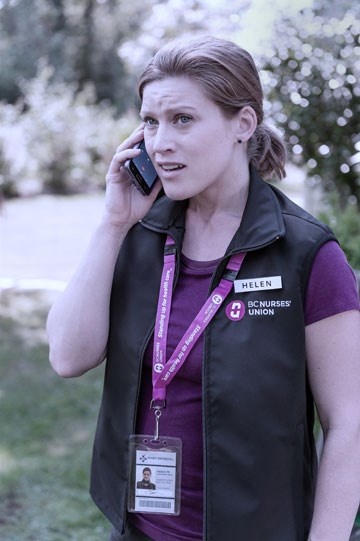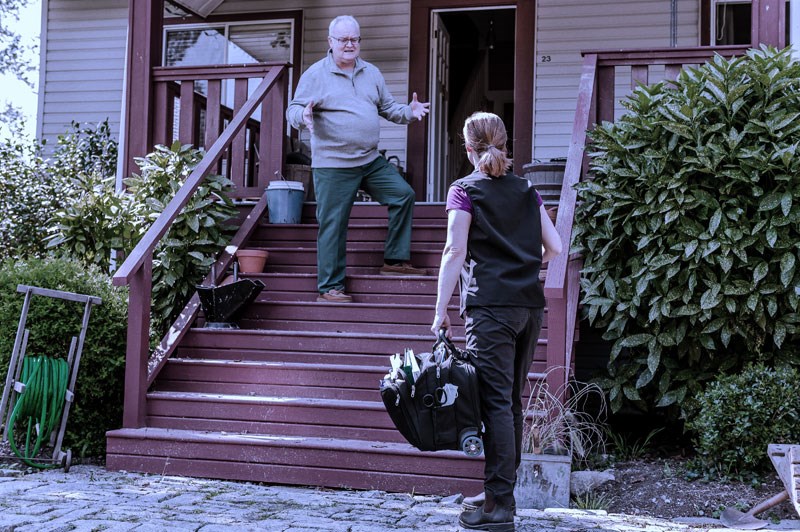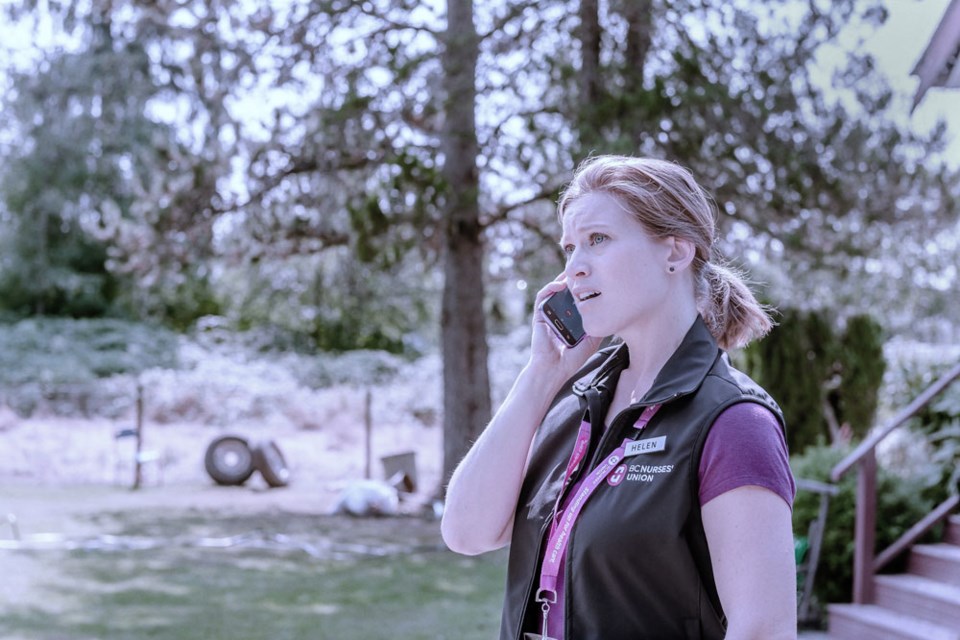Understaffed, overworked and at risk of violence - the conditions faced by our province’s nurses are reaching critical levels.
“There are significant challenges in the current healthcare system which prevent nurses from providing the care that they have the knowledge, skills, desire and compassion to do,” explains Christine Sorensen, president of the ��ѻ��ý Nurses’ Union (BCNU). “Patient demands are increasing, the patient population is increasing and the risk of violence is ever present for nurses, and what we’re trying to do is peel back the assumption that the healthcare system in BC is functioning well. Because it isn’t.”
That’s why the organization has launched the “its #thatbad” campaign, to highlight the plight faced by nurses in BC and the role that the government and the public can play in helping them to heal the healthcare sector.
CRASHING HARD
Nursing is a demanding profession. Its members are on the front lines of BC’s health sector, day in and day out, often working long hours with no time to break or even go to the bathroom. But it’s not the just the physical stresses that are taking their toll on nurses either, they must also deal with the moral and psychological strain that their jobs entail too.
 From life-threatening illness to crime, abuse, and addictions, nurses are faced with the extremes of human suffering. They also experience firsthand the feelings of grief, shock and trauma that people under their care, alongside their loved ones, go through.
From life-threatening illness to crime, abuse, and addictions, nurses are faced with the extremes of human suffering. They also experience firsthand the feelings of grief, shock and trauma that people under their care, alongside their loved ones, go through.
“When you’re episodically exposed to human suffering as nurses are,” says Adriane Gear, Acting Vice President of BCNU. “It can very easily lead to psychological injury or illness as people burn out and breakdown.”
As a result of the nature of their roles, nurses are at greater risk of mental health issues such as anxiety, depressions and in some cases post-traumatic stress disorder (PTSD) than other professions.
According to data collected by WorkSafeBC in 2016, nurses accounted for nearly 12% of all mental disorder claims and over 10% of all claims registered for PTSD. However, unlike first responders, nurses haven’t benefited from government legislation designed to give them faster access to the resources and help they deserve, despite facing the same trauma as part of their day-to-day jobs.
“That’s the unique thing about nurses,” explains Sorensen. “Nurses cope the best they can for as long as they can, but when they can no longer cope they crash hard and that’s unfortunate because nurses become victims and patients in their own healthcare system. What we’re seeing is nurses stretched too thin and suffering the consequences as a result.”
THE CONSTANT THREAT OF VIOLENCE
Beyond the emotional and psychological strains that are associated with the profession, the BCNU is also working to draw the public’s attention to the growing threat of violence that BC’s nurses currently face.
“We all have the right to return to our families at the end of the day free from psychological and physical harm,” explains Gear. “And it shouldn’t be any different for a nurse.”
According to a recent survey by the University College of the Cariboo (now part of Thompson Rivers University), nearly half (46%) of nurses in BC and Alberta have experienced one or more types of violence during the last five shifts that they’ve worked. What’s more, these findings could be just the tip of the iceberg with 70% of nurses in the same survey admitting that they had not reported violence that they have experienced.
“The figures are staggering, but the reality is that there simply isn’t the support in place to keep nurses safe,” Gear adds. “I know there are a lot of demands on the healthcare system and on its budgets, but we can’t continue to just limp along and expect nurses to work in some cases in very dangerous situations.”
As a result, BCNU is calling on the provincial government to implement measures to reduce violence in healthcare. That includes public education and awareness, changes to federal legislation and putting protective mechanisms in place in facilities to ensure that nurses are working in an environment where they can safely provide care.
TIME FOR ACTION
“We’re investing in the buildings and technologies that we need to provide acute care which we’re very supportive of,” says Sorensen. “But without nurses, who will fill those buildings and who will provide those services?”
It’s a statement that cuts right to the heart of the issue. After all, nurses are the backbone of BC’s healthcare system. They are the people on the frontlines, those who are relied upon day in and day out to deliver the very best patient care to our province.
So why aren’t they being listened to?
“That’s why we initiated the “it’s #thatbad” campaign,” says Sorensen. “Nurses are incredibly compassionate, hardworking individuals. They’re here to help patients and they know exactly what needs to be done to enable them to do that to the best of their abilities. But they need their voice to be heard in order for it to make a difference.”
That starts by addressing issues such as staffing, recruitment and retention, and the ongoing threat of violence that BC’s nurses face. It’s also a process that must involve the nurses themselves.
For too long BC’s decision-makers have failed to provide the province’s nurses with the support and responsibility they need to provide the best quality of care possible to patients. But by giving them the tools they need to perform their roles in a safe and secure environment they can not only help to improve the lives of nurses, but of BC as a whole.



